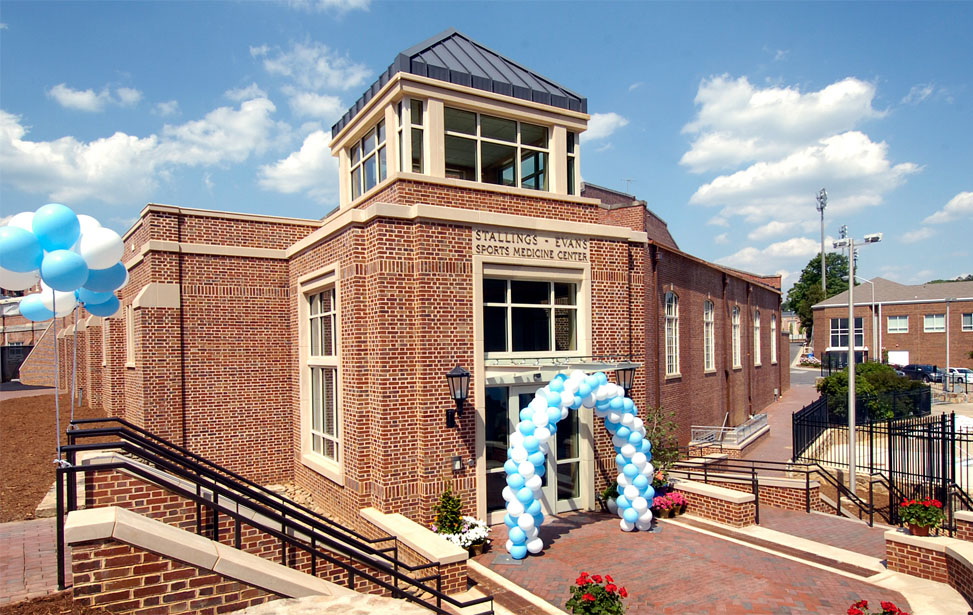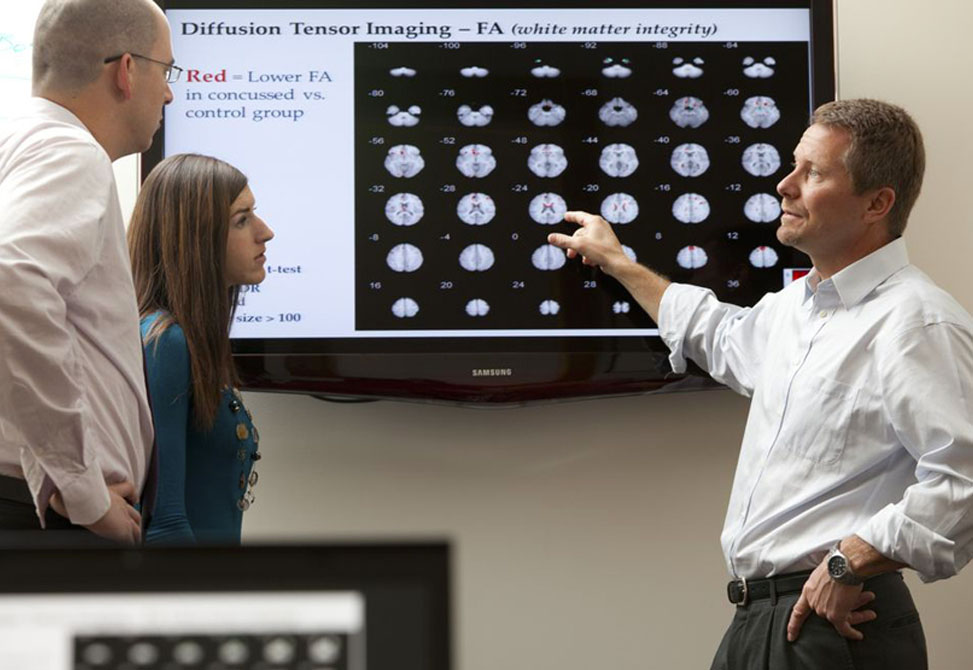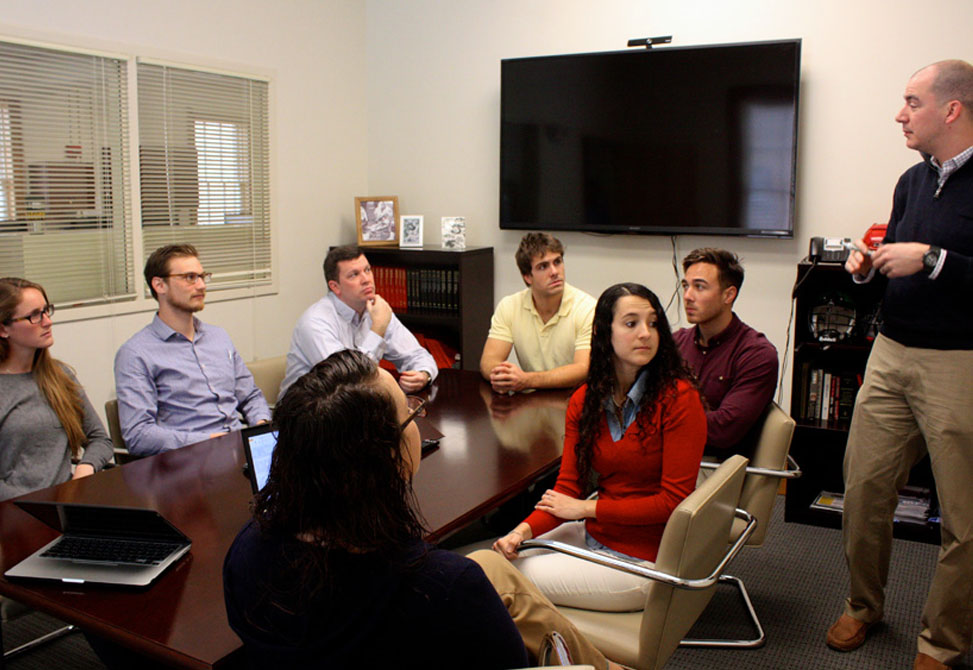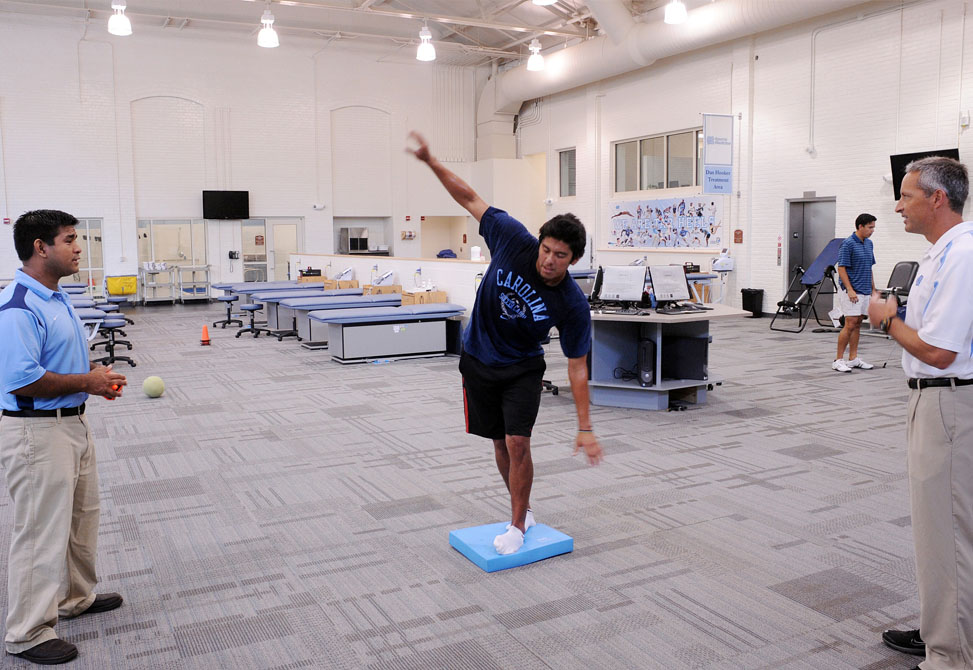Our Research Facilities

The Matthew Gfeller Sport-Related Traumatic Brain Injury Research Center
The main area of the Matthew Gfeller Center is a large open space available for a variety of research and clinical purposes. This space is used to conduct clinical balance exams like the Balance Error Scoring System using Neurocom’s Stability Evaluation Test.
We also use the open space for completing dual- and single-task training sessions with the Wii balance board. The main area of the center opens up to the neurocognitive testing room, the postural stability room, and the conference room.

Neurocognitive Testing Room
The Matthew Gfeller Center is equipped with a room dedicated to the performance of neurocognitive testing. Equipped with four personal computers, we are able to complete a myriad of neurocognitive tests ranging from sophisticated computerized neurocognitive test batteries to more traditional paper-and-pencil neurocognitive test batteries. We also use this space to perform any post-injury patient interviews.
Whereas some institutions will employ a single computerized test battery, the work completed at the Matthew Gfeller Center includes a number of test platforms including CNS Vital Signs, the Automated Neuropsychological Assessment Metrics (ANAM), Axon Sports, and the Immediate Postconcussion Assessment and Cognitive Test (ImPACT). We use these tests to measure aspects of brain function including verbal memory, visual/design memory, processing speed, reaction time, executive functioning, and other neurocognitive measures commonly impaired in athletes following sport-related brain injury.

Postural Stability Testing Room
The Matthew Gfeller Center is also equipped with a room dedicated to postural stability evaluations. Our research team were among the first to objectively identify that balance impairments occur following sport-related traumatic brain injury. With this knowledge, we employ the use of the NeuroCom Sensory Organization Test to assist us in identifying an athlete’s balance performance. This provides our clinical staff with important information in addition to the clinical interview and neurocognitive testing, described above, to begin to build a comprehensive understanding of our athletes’ current injury status.
The NeuroCom SOT consists of six 20-second conditions, completed three times each, that permit us to measure the athletes’ overall balance performance, and also provides us measures pertaining to vestibular, visual, and somatosensory contributors to balance. This is accomplished by the instrumentation in that the surrounding the athlete faces, and the surface the athlete stands on, are both able to move in response to the varying fluctuations of the athlete’s balance abilities.

Matthew Gfeller Center Conference Room
The Matthew Gfeller Center Conference Room is an area where our research team meets on a regular basis to discuss the ongoing research initiatives, develop our plans for future research endeavors, and meet with our continually expanding team of interdisciplinary collaborators. It provides us with additional space in which we may temporarily set up testing stations to accommodate larger groups visiting the Matthew Gfeller Center for preseason baseline testing or other testing related to ongoing research projects. We often use this space following an athlete’s evaluation to discuss our findings with the athlete and his or her parents.

UNC Athletic Training Room, Stallings-Evans Sports Medicine Complex
The Matthew Gfeller Center is located on the top floor of the Stallings-Evans Sports Medicine Center, a state-of-the-art 5700 sq. ft. facility designed to bring sports medicine, athletic training, and clinical research under one roof. We use the Athletic Training room space to rehabilitate brain-injured athletes as needed.

